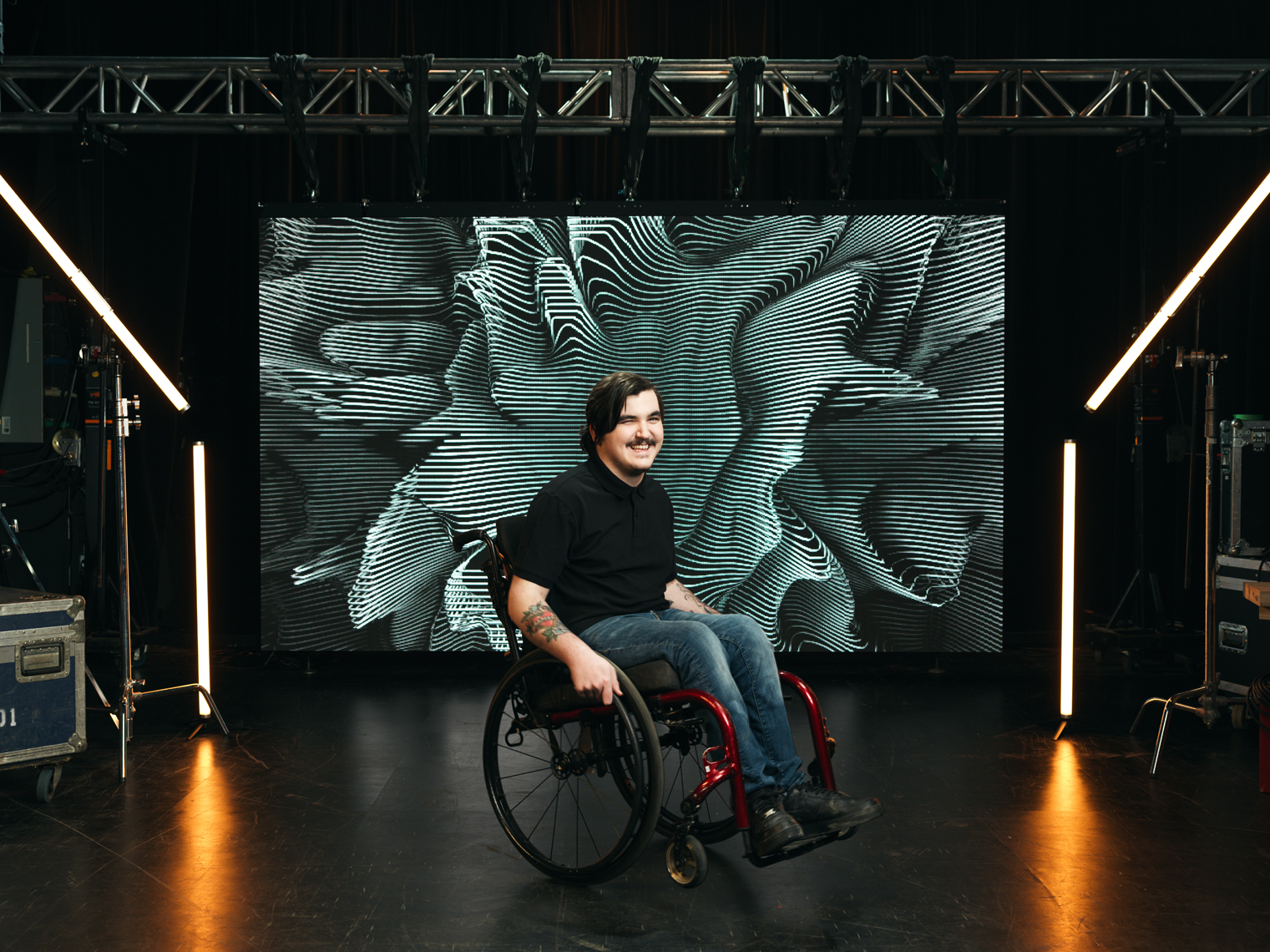Overview
Are you a youth living with a mobility disability who’s ready to create and apply, to be independent and shine? We’re here to help make that happen, with free one-on-one support to get you ready for everything that comes next, including education, training, and employment. Our Transition Planners will work with you to build a personalized plan to reach your goals, whether that be living on your own, getting into college or university, or landing that dream job.
Objectives
Our program goal is: to enhance the employability of youth with a disability in New Brunswick. The program objective is to increase the training, post-secondary education and labour force participation of youth with a mobility disability by providing a specialized one-on-one transition planning service.
Instructions
Step 1: Determining if someone is eligible for our services
Individuals living with a mobility-disability may self-refer to Ability NB services or be referred by an educator, physician, occupational therapist, physiotherapist, social worker, case manager or other service provider. We also welcome referrals from a family member of guardian when the potential service participant has memory or communication difficulties or if it is for a youth under the age of 16.
To determine eligibility for Ability NB services, simply call our toll-free Information Line at 1.866.462.9555 from anywhere in New Brunswick or e-mail info@abilitynb.ca. A Transition Planner will connect with you within two (2) working days to collect more information and answer any questions.
Step 2: Getting registered with Ability NB
Once a Transition Planner determines eligibility for services, they will schedule a time for the formal referral to be completed by phone. At this time, the individual is responsible for initiating a call to the Director of Services at 1.866.462.9555 to complete the process. At the end of this phone meeting, the individual will be formally registered with Ability NB and assigned a Transition Planner.
Key Highlights
Transition Planners work with youth with a mobility disability on the following activities:
- Building of a planning team including parent/family member/guardian involvement, educators including guidance and resource teachers, social workers, occupational therapists, businesses providing experiential learning opportunities and other current and future service providers including Employment Assistance Service providers.
- Completion of a formal PATH (Planning Alternative Tomorrows with Hope) planning process to help guide transition planning when applicable.
- Development of a formal transition plan including education and employment objectives.
- Implementation and updates of the transition plan.
- Coordination of tours of training, post-secondary and education facilities with a focus on gaining insight into services, facilities and accessibility.
- Connections to student accessibility and accommodation centers and services.
- Assistance with development of financial literacy skills (e.g., budgeting and money management, banking, fraud, credit and debt management, saving and investing, insurance, taxes and tax credits).
- Facilitation of student loan applications, Canada Study Grant applications and scholarships and bursary applications.
- Provision of advice on Training & Employment Support Services (TESS) applications.
- Completion of accessibility reviews and recommendations for training, post-secondary facilities and employers.
- Facilitation of assessments and consultations with Occupational Therapists, augmentative communication specialists, assistive technology specialists and accessibility/accommodation centers to determine equipment, technology (e.g., computers, iPads, software, applications), assistive devices, educational assistants, tutors and/or note takers that may be required.
- Exploration and connection to accessible housing and transportation options in the community. This often includes applications for housing, housing modifications, and applications for accessible transportation services.
- Facilitation of applications for the Disability Support Program, if personal support services are required outside of school hours for assistance with personal care activities such as bathing, dressing, ventilator care, and housekeeping.
- Linkages with peer mentors (i.e., programs at post-secondary education institutions, other students with a disability with similar goals).
- Referrals and linkages to Employment Assistance Services agencies.
